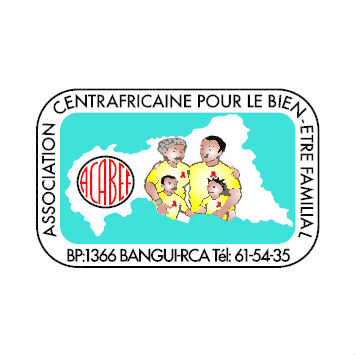

| 31 March 2016
Association Centrafricaine pour le Bien-Etre Familial
The Association Centrafricaine pour le Bien-Être Familial (ACABEF), was established in 1986 and recognised as an NGO by the Central African Government 1987. It signed a collaboration agreement with the government in 2003. Aim: To participate with the Government in creating the necessary conditions for the economic, social and cultural development of the population; To support the Government and through it the Maternal and Child Health Services; To contribute to the integration of family planning programmes into the public health system; To provide, when necessary, useful advice to relieve couples suffering from infertility and help them prevent future cases. Objectives: To increase young people's access to comprehensive, gender-sensitive sexual and reproductive health information and education; To increase young people's access to a wider range of age-appropriate services; Contribute significantly to the prevention and control of STIs/HIV/AIDS; Contribute to increasing access to psycho-social care for people infected and affected by HIV/AIDS through a dynamic partnership; To improve the access of women, men and young people to quality Sexual and Reproductive Health (SRH) services using a gender and rights based approach; To contribute to the information and reduction of unsafe abortion rates in the country; To provide care for victims of GBV. ACABEF targets: Adolescents and youth; Men and women of reproductive age Number of clinics: ACABEF has had 07 clinics since its creation, namely The model clinic in Bangui in the capital The Ouham regional branch located in Bossangoa; The Lobaye regional branch in Mbaiki; The Ouaka Regional Antenna located in Bambari. A Point of Care (PPS) in Paoua A Care Provision Point (PPS) in Bozoum A youth-friendly centre in Bangui. However, with the socio-political events that the country has experienced since 2013, some clinics in the interior of the country have been completely vandalised and destroyed by armed groups and their goods taken away. For the time being, the association only has two clinics located in Bangui and Mbaiki and a youth centre in Bangui. The Association has been offering an average of 400,000 services per year to the population for the past 3 years including: SRH and FP services in fixed and advanced clinics HIV screening and follow-up of people declared positive for psychological care Comprehensive sexual education Carrying out community-based distributions Management of VGB Infertility treatment Advocacy on SRH rights issues

| 19 January 2024
Gestos - Brazil
Gestos is a philanthropic organization founded in 1993 by sociologist Acioli Neto, journalist Alessandra Nilo, sociologist Márcia Andrade and social worker Silvia Dantas. The first project developed was supported by MISEREOR and focused on psychological care for people living with AIDS, as well as the training of information multipliers in the poorest communities of the Metropolitan Region of Recife. Since then, they have effectively contributed to guaranteeing the human rights of people living with HIV and AIDS. About 70% of the people who have sought legal support from the institution have had their rights redressed, through precautionary measures and sentences, which today are even part of the list of jurisprudence on the subject of Law and AIDS. Throughout its history, the organization has considered communication as fundamental in the fight against AIDS and has fought to expand this understanding in Pernambuco, Brazil and Latin America. This vision has consolidated Gestos as an important reference in Communication and AIDS in the country, with special emphasis on discussions on Public Policies on Health Communication. They also help to form new civil society organizations, such as the National Network of People Living with HIV/AIDS (RNPVHA - 1995), the Positive Work Group - GTP+ (2000), the Group of Positive Actions (2003), the Group of Support to HIV Positive People (GASP) 2003, Acts of Citizenship (2006). From 2007 to 2011, Gestos created and coordinated the UNGASS-AIDS Forum on Sexual and Reproductive Health, where it oversaw the implementation of agreements signed at the UN in sixteen developing countries. The UNGASS-AIDS Forum has established itself as a space for political debate on issues related to HIV and AIDS and sexual and reproductive health and rights. They are also a consultative NGO at the UN, with ECOSOC status since 2017. Instagram Twitter







